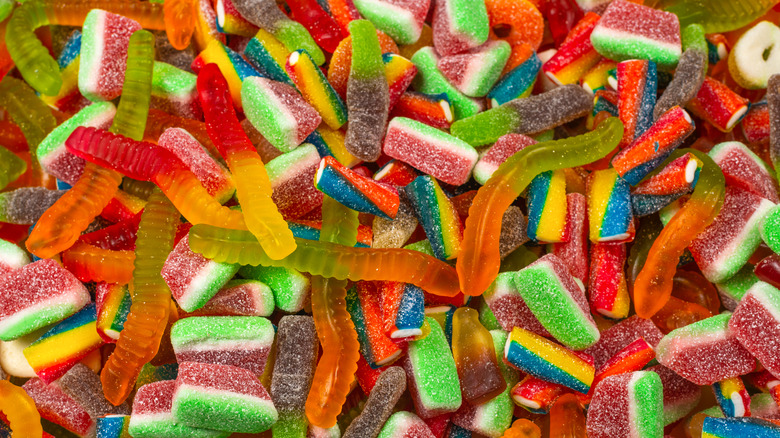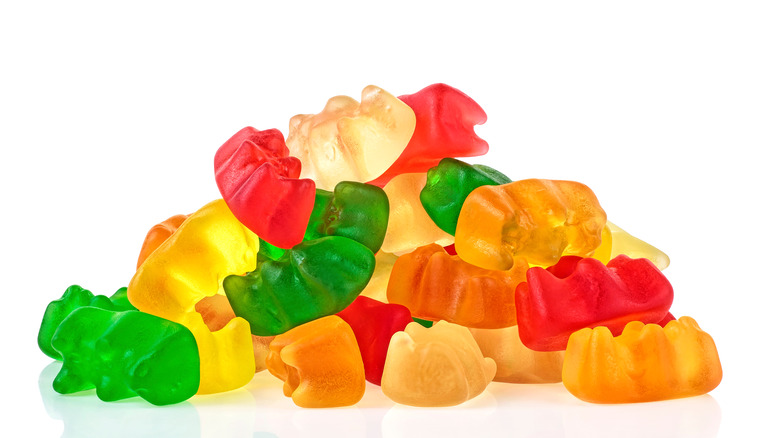What Gummy Candy Really Does To Your Teeth
Candy can be a dentist's worst nightmare. While all candies are not created equal in how they affect your teeth, it's safe to say that gummy candy tops the dental list of one of the worst candy options for your teeth.
The chewy texture may be what sells gummy varieties of candy as your favorite, but it's exactly that texture that makes gummy worms detrimental to your oral health. The ingredients of sugar and gelatin create an acidic mixture that eats away at your tooth enamel (via Summit Dental Health).
Once the process of demineralization is kicked off, the wearing of your enamel can lead to cavities, cracked or chipped teeth, tooth sensitivity, and more. The risk is particularly high when it comes to those chewy candies that get stuck in your teeth and create a blockage. When your saliva can't reach your tooth, it can't fight off the sugars, which prevents remineralization and accelerates enamel erosion (via Woodlands Pediatric Dentistry).
How to enjoy candy and keep your teeth healthy
Gummy candy's texture can also prove to be a problem for those with dental work like crowns, not to mention orthodontia like braces. Your dentist will thank you for avoiding gummy candy if you have any dental work that could come loose thanks to a gummy worm.
Dentists say the only chewy candy you should be enjoying guilt-free is sugar-free chewing gum, according to Summit Dental Health. Even vitamin gummies can have some of the negative impacts that gummy candies have on our teeth. But what if you simply want to indulge in some gummy bears?
Woodlands Pediatric Dentistry advises that you avoid eating the candy over an extended period of time. Instead, enjoy it in one sitting and then brush your teeth a half hour later. It is also helpful to rinse your mouth out after eating — especially if there isn't a toothbrush immediately nearby.


